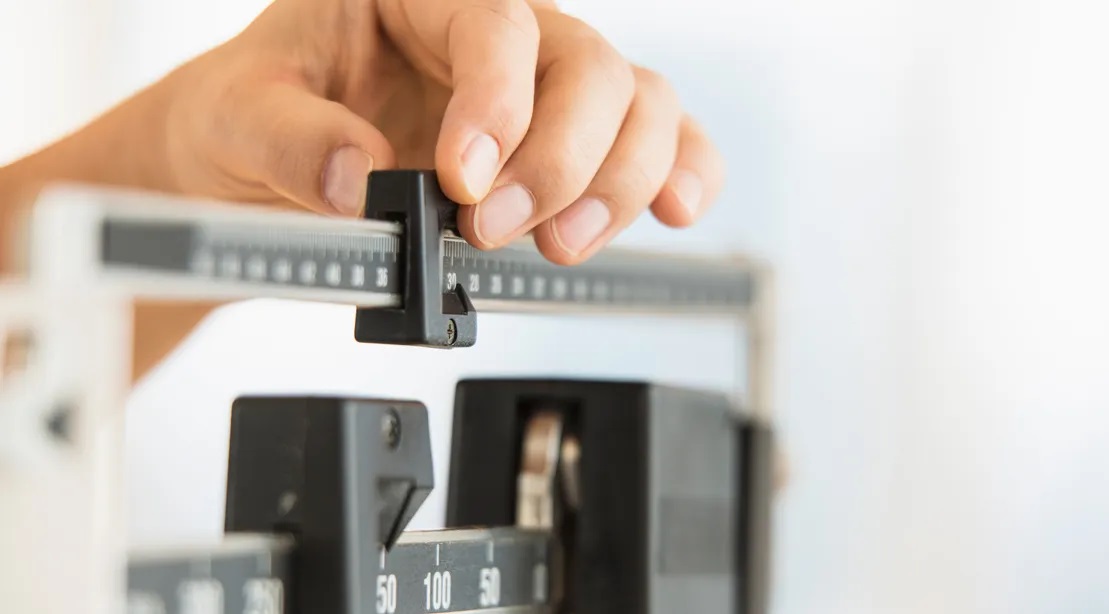How many times have you gone into a new diet, or any change for that matter, with high expectations only to crash and burn within weeks? This is way more common than you realize.
So many people go into a new diet plan with an all-or-nothing mindset. Not only does this set you up for disappointment, but it makes the change that much harder and more uncomfortable from the get-go.
You don’t have to give up everything or overhaul your entire life to get results. Small changes that you can stick to tend to be the best approach. Plus they set you up for success since they tend to be easier.
Getting started on a diet is the easy part, the hard part is sticking to it and getting results.
Here are ten tips to make sure you get the most out of your new diet plan by knowing what to expect and how to set yourself up for success.
1. Start Small
Start with one or two small goals that you think you need to work on and aim to stick to those for two to three weeks, with the intention of making them a habit. Then once you’ve mastered your small goals, add some more. Or if you’re still struggling, try a different goal, trying different habits on until something clicks.
2. Systems Make it Easier
One of the best things you can do for your long term health and fitness goals is to build systems. Systems are routines built into your everyday life, helping you remove obstacles and build habits.
And the more seamless you can make your goals, the easier they are to stick to and the faster results come.
Want to get better at hitting the gym every morning? Pick out your gym clothes the night before and lay them beside your bed.
Want to stop eating out for lunch every day? Set a time to meal prep healthy options every week or opt for a meal delivery service that does the hard work for you.
3. Strive for Accuracy
If you don’t measure it, you can’t manage it. So stop guessing how much you’re eating and track it using a macro-friendly nutrition app.
Tracking your food intake every day, including cheat meals and alcohol, is the best way to hold yourself accountable and ensure you are hitting your goals. Otherwise, you’re flying blind when it comes to your nutrition.
4. Cravings Are Normal
As soon as you start restricting something, it’s human nature to start craving that exact thing. And the more you restrict, the more you crave — especially when it comes to sugar cravings!
Outside of sheer willpower, having good nutrition is a great way to help cut down on certain cravings. Increase your protein intake, emphasize more nutrient-dense fruits and vegetables, and don’t cut your calories too low.
etting strategic about your cheat meals and learning true diet maintenance can also help. No food should ever be forbidden, especially if you plan on having your hard work stick around after you’re done dieting.
Work on your relationship with your favorite cheat foods by allowing them in small quantities.
Schedule cheat meals in advance and remove any guilt associated with them. You don’t have to overdo it to enjoy it — challenge yourself to include some favorite foods and scale it back a little at a time.
5. Your Energy May Fluctuate
While eating better usually results in increased energy levels, this may not always be the case at the start.
If you’ve had a poor diet for some time now, changing things up can do a number on your energy and your mood. Your body is learning to rely on different fuel and this may take an adjustment period.
However, if your energy levels don’t improve after a few weeks, this is usually a good sign your body isn’t getting what it needs and you may want to reconsider your approach. Either loosen up the restrictions or up your calorie intake a little.
Hang in there and do your best to get enough sleep and keep your stress levels in check.
6. It Is Possible to Be too Hungry
A little increased hunger is a natural part of calorie cutting, but if you’re starving and straight-up hangry, you’re setting yourself up for diet failure.
You do not need to starve to get results and using a phased approach to cutting can really help. If you’re new to dieting, don’t cut too low from the start. Most aim for a 15 to 20% calorie cut for sustainable weight loss, but you can start with a more conservative cut if needed.
Consider doing a prep week(s) to find your caloric baseline and get used to tracking everything you are eating. Then cut 10% of your calories for a few weeks, following by 15% for another few weeks, and so on. This will help your metabolism adjust to decreased intake and keep hunger at a more reasonable level.
7. Sleep is Essential
If you aren’t sleeping well or enough, you can kiss your willpower and good intentions goodbye. The act of dieting already takes some self-discipline and it is significantly harder to stick to a diet, get a good workout in, and support your health when you are tired. Rest is also crucial for muscle recovery and growth.
Make sleep a priority by having a bedtime you can stick to and get up around the same time every day. Remove distractions right before bed like your cell phone, television, light, etc. And work your way up to at least 7 hours of quality rest each night. It will make a world of difference.
8. Failure Is Part of the Process
Failure is not only not a big deal, but crucial to your success. Without failure, we never learn how to get better, stronger, and more equipped. Besides, only you can decide when you’ve truly failed.
Learn to embrace failure as part of the process and change the way you respond to it by embracing it a bit more. Instead of looking at slip-ups as a reason to abandon course, see what you can learn from them — maybe your goal was too aggressive, maybe you’re focused on the wrong things, or perhaps you need a bit more balance in your approach.
Regardless, failure can be a great thing and is nothing to be concerned about. Dust yourself off and keep at it, no one gets it right the first time around. The more you try, the more likely you are to succeed.
9. The Scale Can Lie
Weight fluctuations are 100% normal and not always in your control. Depending on your macro intake, workouts, stress, sleep, hormones, etc. water retention can cause some drastic swings in your bodyweight.
Not to mention, if you’re gaining muscle and losing fat at the same time, the scale won’t budge even if your pants are fitting looser. So instead of living and dying by the scale, measure your progress in other ways.
The best way to tell if your hard work is paying off is by getting a body fat analysis done. This will show you exactly how much fat you’ve lost and how well your workouts are supporting lean muscle mass — helping you look more toned in the end.
Other ways to measure progress include paying attention to how you feel, how your clothes are fitting, how your workouts are going, and daily progress photos.
10. Consistency Matters Most
Real change is the result of consistency and patience, not perfection. Remember, your health is the result of all the decisions you’ve made in your life thus far, not the last meal you ate.
You are what you repeatedly do, so the more you repeat something, the stronger impact it has. This is what consistency is all about.
Strive to get it right most of the time not every time and everything falls into place.



